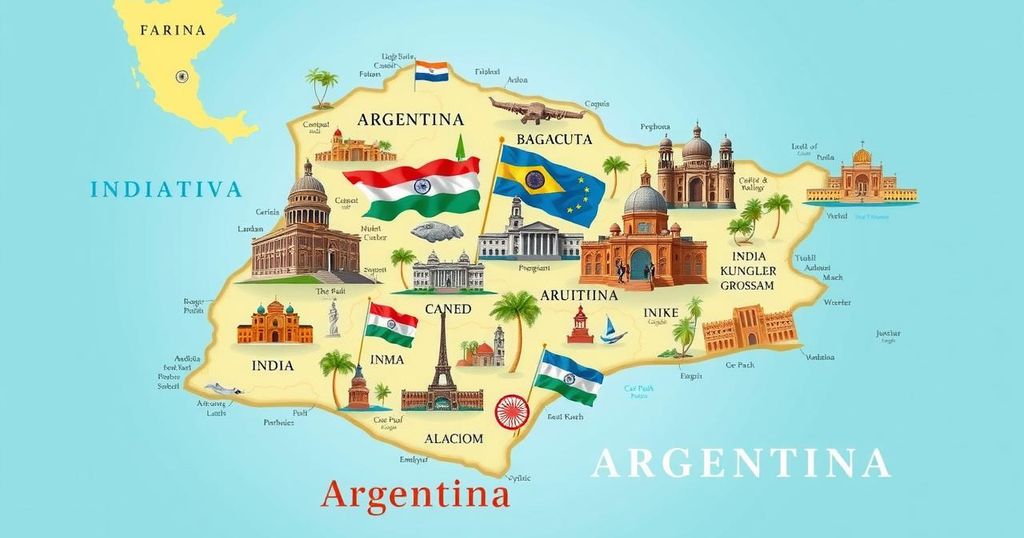Global news
AFRICA, ASHEVILLE, ATLANTIC, BE, BERMUDA, BRIAN MCNOLDY, CARRIACOU, CUBA, DOMINICAN REPUBLIC, EUROPE/ASIA, FLORIDA, GEORGIA, GRENADA, GULF COAST, GULF OF MEXICO, HELENE, HURRICANE, HURRICANE BERYL, HURRICANE SEASON, JAMAICA, KATE, KATRINA, MAINLAND, NATIONAL HURRICANE CENTER, NATURAL DISASTER, NATURAL DISASTERS, NORTH AMERICA, NORTH CAROLINA, OF MIAMI, ORLANDO, RAFAEL, SOUTH AFRICA, SOUTH CAROLINA, TAMPA, TENNESSEE, U. S, U. S. GULF COAST, UNITED STATES, UNIVERSITY, UNIVERSITY OF MIAMI, VIRGINIA
Jamal Walker
0 Comments
2024 Atlantic Hurricane Season Concludes with Historic Storm Activity
The 2024 Atlantic hurricane season ended with 11 hurricanes, significantly surpassing the average of seven. Major storms such as Beryl and Helene caused extensive damage and fatalities across multiple regions, highlighting the influence of climate change on hurricane patterns and intensity. Researchers indicate that warming ocean temperatures may lead to more extreme weather events, emphasizing the need for continuous monitoring and preparedness.
The 2024 Atlantic hurricane season concluded on Saturday, characterized by an unusual frequency of storms, with a total of 11 hurricanes compared to the historical average of seven. This season inflicted considerable devastation across various regions, notably impacting the U.S. Gulf Coast as well as Bermuda, Cuba, the Dominican Republic, and Grenada. Meteorologists described it as a “crazy busy” season, attributing the increase in hurricane activity to significantly warm ocean temperatures.
One of the standout events was Hurricane Beryl, which formed as the first Category 4 hurricane recorded in June, devastating the island of Carriacou in Grenada. The aftermath resulted in fatalities and widespread destruction of infrastructure. Furthermore, Beryl rapidly intensified into the earliest recorded Category 5 hurricane on July 1, a phenomenon not typically observed until the first of September.
In September, Hurricane Helene caused catastrophic damages across the southeastern United States, being the deadliest storm to strike the U.S. mainland since Hurricane Katrina in 2005, with over 200 fatalities reported. North Carolina assessed the storm’s damages at a staggering $48.8 billion, encompassing destruction to homes, water systems, and agricultural areas. Other states such as Florida, Georgia, and Virginia also reported significant damage.
Hurricane Milton made headlines in October, reaching maximum wind speeds of 180 mph, marking it as one of the Gulf of Mexico’s most powerful hurricanes recorded. This hurricane led to extraordinary rainfall, tripling average September and October precipitation levels in affected areas. In November, Hurricane Rafael reached wind speeds of 120 mph, nearly setting a record for the strongest November hurricane, causing further distress for Cuba as it was recovering from Hurricane Oscar’s impact in October.
The changing climate has been indicated as a contributing factor to this unusual hurricane activity. Increased emissions of greenhouse gases like carbon dioxide and methane are causing ocean temperatures to rise, allowing for hurricane formation outside their typical timeframes. As Brian McNoldy, a hurricane researcher at the University of Miami articulated, such conditions lead to the emergence of unprecedented storms earlier and later in the season, raising the likelihood of extreme weather events.
In summary, the 2024 hurricane season presented several unprecedented storms that showcased the intensity and frequency likely influenced by climate change. The consequences have been dire, with substantial loss of life and property across various regions, highlighting the need for continued vigilance and research regarding hurricane patterns and their relationship to climate trends.
The Atlantic hurricane season runs from June 1 to November 30 each year. This period typically witnesses the formation of tropical storms and hurricanes, which are influenced by various environmental factors, including sea surface temperatures. The analysis of the 2024 season indicated an alarming trend, with increased activity and intensity of storms attributed to warming ocean temperatures linked to climate change. Researchers have noted that these changes not only affect storm frequency but also their potential destructive power and unpredictability, raising concerns about future hurricane seasons.
The 2024 Atlantic hurricane season marked a significant deviation from historical norms, characterized by an increased number and intensity of hurricanes, potentially attributed to climate change. The impact has been profound, resulting in widespread destruction, financial losses, and loss of life. As climate conditions continue to evolve, the threat posed by hurricanes is likely to grow, necessitating enhanced preparedness and adaptive strategies to mitigate future impacts.
Original Source: www.newsday.com




Post Comment